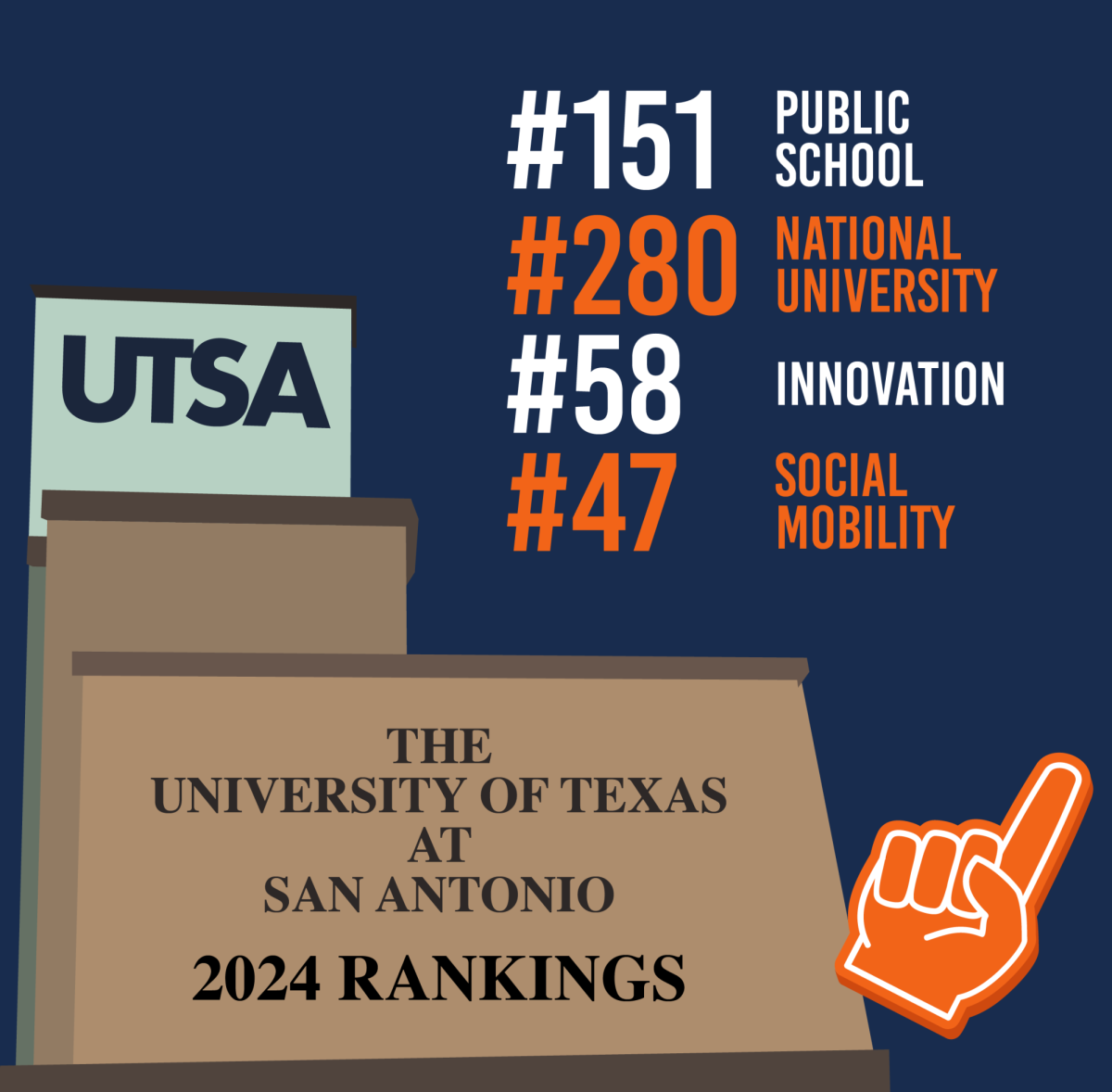A group of UTSA faculty believe freshmen haven’t received the foundational skills in science, math and reading required to be successful in college. These professors are working change that.
The Chemical Education Research Group (CERG), consists of professors in Chemistry Department and in the College of Education and Human Development. Their aim is to improve area students’ college readiness through two avenues: assisting high school teachers to prepare their students and preparing incoming freshmen for their new journey.
The term “college readiness” refers to the foundational skills a high school student should have upon graduation to be successful in college. According to Dr. Hector Aguilar, a member of CERG, these foundational skills include a basic knowledge of science, math and reading.
Using data from the United States Department of Education, The Manhattan Institute produced a report that found only 70 percent of students leaving high school are prepared for college.
In a college readiness standards report, the Texas Education Agency (TEA) said that despite Texas’ substantial gains in education, the state trails other states in preparing students for and sending students to postsecondary education.
Additionally, the standards report stated, “It is also clear that K-12 students, along with their parents, are uncertain about what students must know and what intellectual skills they must possess to be successful beyond high school.”
Aguilar has noticed this problem in his classroom.
“What we are looking to do is gather research, particularly in our chemistry department and try to address problems that we see in our own department,” Aguilar said.
“One of the biggest problems we notice with entering freshmen is that their foundational knowledge in chemistry is not where we want it to be.”
Aguilar observed most entering freshmen must take Basic Chemistry because their foundational knowledge is limited. Students have the opportunity to test out of Basic Chemistry as well as test out of other remedial courses, but they often don’t take of advantage of this opportunity.
The result is more time in class and more of the students’ money spent on their education. The consequence for UTSA is a lower graduation rate because remedial courses extend students’ degree plans, which can prevent or discourage them from graduating on time.
“Students won’t have to go through Basic Chemistry; they can go straight into General Chemistry 1. They can take an entrance exam that shows they mastered the necessary skills,” Aguilar said.
The CERG first initiative was to reach out to San Antonio area high schools in District 20 to determine the origin of the problem. The group held workshops with a small pool of high school teachers. They began with an assessment that tested teachers on basic chemistry knowledge to identify potential areas of improvement.
The group used the Texas Education conclude that the high school teachers did not have the content knowledge required to teach the foundational skills a student needs to be prepared for college. Dr. Carmen Fies, College of Education, believes the reason is many high school teachers teach out of their discipline.
“It’s a fairly typical set-up in many schools where, for example, a science teacher is hired as essentially a generalist and then they are assigned to any of the sciences. So somebody who has a strong background in biology may teach biology, but they also may be assigned physics or other disciplines,” Fies said.
The high school teachers who attended the seminars responded to the program positively and continue to communicate with members of CERG.
“What we wanted to do was bolster content knowledge for one, and at the same time infuse pedagogical models that support the learning of chemistry,” Fies said. “The program was more heavily weighted in the content rather than the pedagogy, and that is intentional because they are already teaching.”
To showcase the direction the CERG program may go, Aguilar shared an email from a teacher asking content and curriculum related questions.
“The whole goal of this is to help the students. If we can help the teachers by reinforcing their content knowledge and give them a resource that they can rely on, then that will help their students.”
Additionally, CERG designed lab experiments and techniques that high school teachers can utilize with the materials they currently have.
“The other aspect we are trying to do is tackle the students directly,” Aguilar added.
The plan is to alert incoming freshmen to a summer boot camp designed to help students test out of remedial chemistry courses. If CERG is successful, the summer boot camp model could work in other departments to further boost students’ savings on tuition and boost graduation rates, but a familiar barrier needs to be overcome.
“To run these summer boot camps it costs money,” Aguilar said.
The Chemistry Department supplied generous funding in the early phase of CERG’s project, according to Aguilar, but recently UTSA has faced department-wide budget cuts which affected CERG.
“We are trying to find funding,” Aguilar said. “We are thinking about external funding through grants through the Department of Education, through the National Science Foundation, but grants require preliminary data.”
CERG has not established a proven concept because the low turnout CERG has experienced hasn’t produced enough data.
“When we only have three to five teachers, our pool of data is very limited. It is difficult to write a competitive grant with that. There are grants we are looking at that we have a chance to get, but we would have a stronger shot if we had a larger pool.”
Aguilar described the predicament as a circular problem. In order to receive a grant, CERG could use more data, but in order to collect more data CERG needs a grant.
Despite the potential wall CERG faces, Aguilar says the project is still in motion.
“Our group doesn’t want to wait. If we can’t get funding from our college, we’ll keep looking, and when the university sorts everything out, then maybe we can tackle it more effectively,” Aguilar said. “In the meantime we’ll keep running because we don’t want to lose momentum.”






